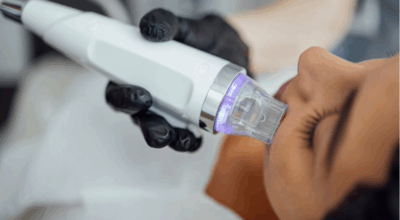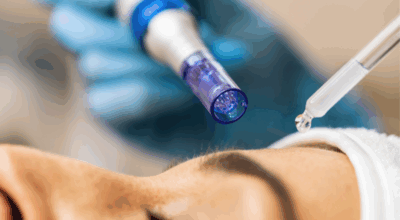Blog
At 4Ever Young, we help you look and feel your best at every age. Our blog is dedicated to bringing you the latest insights, tips, and news in the world of anti-aging, vitality, and overall health. Explore a variety of topics, from skincare and nutrition to fitness and hormone therapy, all designed to support your journey toward a healthier, more vibrant life. Our expert contributors are passionate about sharing their knowledge and keeping you informed about the newest trends and breakthroughs in anti-aging.

Let’s face it—aging shows up whether we’re ready or not. Maybe it’s the lines that didn’t bounce back after a stressful year. Or that patch of...

Morpheus8 is a skin rejuvenation treatment that combines microneedling with radiofrequency (RF) energy to improve skin tone, texture, and firmness. This...

In recent years, doctors have increasingly recommended Botox for hyperhidrosis as a reliable and effective treatment. This approach gives people confidence...

At 4Ever Young, we believe that men deserve more than the bare minimum when it comes to their health. June marks Men’s Health Month—a timely reminder that...

Choosing the right provider for your microneedling treatment can significantly impact your experience. A well-trained provider will know how to assess your...

Botox is a purified form of botulinum toxin A used to relax targeted facial muscles and reduce the appearance of lines caused by expressions like smiling or...

When it comes to improving skin texture and minimizing the appearance of old blemishes, many people turn to microneedling for scars. This minimally invasive...

Achieve Radiant Skin with Confidence and Clarity Introduction to Chemical Peels for Beginners What Is a Chemical Peel and How Does It Work? A chemical...

Hyperpigmentation is a condition in which certain areas of the skin become darker than the surrounding skin due to excessive melanin production. This...

Microneedling is a minimally invasive skincare treatment that uses a tool with sterile needles to create small punctures on the skin’s surface. These...

Microneedling is becoming a popular option for individuals seeking to enhance their skin without undergoing invasive surgery. However, like any cosmetic...

Before booking your first session, it's important to get a clear idea of the total microneedling cost. Several hidden factors can influence the actual amount...



